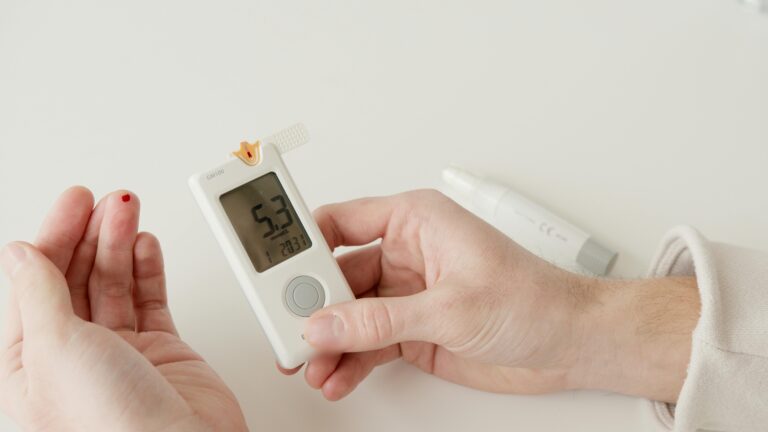Managing Diabetes as a Cancer Patient: A Simple Guide

Person checking their blood sugar levels
Living with diabetes is challenging, and when combined with a cancer diagnosis, it can feel overwhelming. Diabetes occurs when your pancreas doesn’t produce enough insulin or your body can’t use it effectively. This leads to high blood sugar levels, increased thirst, and frequent urination. For cancer patients, managing diabetes is even more critical because high blood sugar and insulin resistance can worsen cancer outcomes. Here’s a simple guide to help you navigate this dual challenge.
The Link Between Diabetes and Cancer
Research shows that diabetes, especially type 2, increases the risk of certain cancers like pancreatic, liver, endometrial, colorectal, bladder, breast, and blood cancers. High blood sugar (hyperglycemia) can damage DNA and reduce its ability to repair itself, which may promote cancer growth. Additionally, many people with diabetes are overweight or obese, which is another risk factor for cancer.
How can you manage diabetes during treatment
Control Blood Sugar Levels
Keeping your blood sugar in check is crucial. High blood sugar not only worsens diabetes but can also fuel cancer growth. Work with your doctor to monitor your levels regularly and adjust medications.
Maintain a Healthy Weight
Being overweight increases insulin resistance and cancer risk. Focus on losing excess weight through a balanced diet and regular exercise. Even small changes can make a big difference.
Follow a Healthy Diet
Eat a diet rich in whole foods like vegetables, fruits, lean proteins, and whole grains. Avoid processed foods, sugary snacks, and refined carbs, as they can spike blood sugar levels. A dietitian can help create a meal plan tailored to your needs.
Stay Physically Active
Exercise helps lower blood sugar, improve insulin sensitivity, and maintain a healthy weight. Even light activities like walking or yoga can be beneficial. Always consult your doctor before starting a new exercise routine.
Prioritize Sleep and Manage Stress
Poor sleep and stress can raise blood sugar levels and weaken your immune system. Aim for 7-8 hours of sleep each night and practice relaxation techniques like meditation or deep breathing.
Avoid Alcohol and Smoking
Both alcohol and smoking can worsen diabetes and increase cancer risk. Quitting smoking and limiting alcohol intake can significantly improve your health.
Regular Medical Check-ups
Regular visits to your healthcare team are essential. They can monitor your diabetes, cancer treatment progress, and overall health to catch any issues early.
Why It Matters
Studies show that diabetes can negatively impact cancer survival rates. By managing your blood sugar, maintaining a healthy lifestyle, and following your treatment plan, you can improve your quality of life and potentially reduce cancer-related risks.
Managing diabetes as a cancer patient requires extra care, but it’s entirely possible with the right approach. Focus on controlling your blood sugar, eating well, staying active, and reducing stress. Remember, you’re not alone—work closely with your healthcare team to create a plan that works for you. Small, consistent steps can lead to big improvements in your health and well-being.












